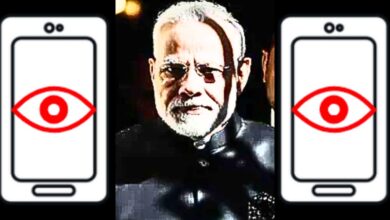Indian consumers get a sense of relief as the prices of fuel and diesel get slashed again after reaching sky-high levels

The sky-high prices of fuels in India have been a widespread talking topic during family dinner discussions or during formal meetings for quite some time lately. Ever since the pandemic began, the rates have been observed going up only. Albeit there was a reduction noticed in prices of fuel and diesel over an entire year. After the last price cut was recorded on March 16, 2020, the oil marketing companies further slashed the prices on Tuesday (March 30) due to a fall in international crude prices. This was announced because of the drop in the price of Brent crude oil to $64.83 per barrel, down from 15 cents or 0.2 per cent on account of clearing of the Suez Canal hours after being blocked by an enormous Ever Given ship. Even though the waterway was freed as soon as possible, the global economy witnessed a large number of losses due to the unprecedented trade halt. The futures of West Texas Intermediate or WTI also faced a drop of 1 per cent. Today it costs $ 61.66 per barrel.
The Oil Marketing Companies, often abbreviated as OMCs, has been reducing the prices of fuel and diesel for days now after a long break of nearly 6 months followed by the decline in the price of crude. With the price of the Brent crude oil slumping to $64.83 earlier, the petrol prices were further deducted by 22 paise per litre making it cost Rs 90.56 on Tuesday (March 30) against Rs 90.78 on the previous day. The Diesel. today, costs Rs 80.87, down by 23 paise as against yesterday’s price in the national capital.
As noted by the experts, the hold in price revisions by the OMCs wiped out the Rs. 2.5-3 per litre margin profit they made on the sale of diesel and petrol as the cost reached $70 per barrel.
The time before most people woke up on 23 March 2020, Tuesday, the price of crude oil had already fallen down below zero which was in fact seen for the first time in history. Shockingly, the sellers were seen paying the buyers to take off the stuff away from them. There was so much unutilized oil spattering around the American Energy Companies due to which they ran out of space to store the stock in their own warehouses and storage locations.
Let’s fast forward the situation to the present (or at least near present).
The price of crude oil was consistently rising between early October and March as the OPEC+ countries (Organization of the Petroleum Exporting Countries) decided to carry on with the production cuts despite the rates of crude outstretching near pre-covid levels. Also, the US was severely hit by the snowstorms in mid-February which further led to a great fall in the US crude oil production. Apart from this, the slow vaccination process in Europe has also contributed to the growing concerns regarding slow demand.
The prices of fuel and diesel have been constant for the last 24 days but the OMCs have recently reduced the prices due to the fall in crude prices globally. The fuel prices have been an electoral issue in the upcoming election in the following states: West Bengal, Tamil Nadu, Assam and Kerala noticeably. However, we have witnessed the increase in taxes levied on Diesel by Rs 16 per litre and on Petrol Rs. 13 per litre the previous year. Meghalaya, Rajasthan and Assam are included among the states that have taken back hikes in taxes imposed by states on petrol and diesel. Pradhan warned everyone about the rising prices which could hurt the global economic recovery as a whole at the South Asia Commodities Forum of S&P Global Platts organized recently.
Interestingly, only 25-30 per cent of the retail pump cost depends on International benchmark price and the rest are central and state taxes. We get retail prices by adding state and central taxes and dealer commission to the benchmark price of production. “We probably have no choice but to pass on the variation (in benchmark cost) to the consumer. The government has taxation handle, the cracks or margins are low and the government alone cannot answer how prices should be paused” says Mukesh Kumar Surana, head of India’s third-largest fuel Retailer, that is, Hindustan Petroleum Corporation Ltd (HPCL).
Apart from the national capital, there were many cities where the price revision was implemented. Petrol prices in these three cities: Mumbai, Kolkata and Chennai were reduced to Rs. 96.98, Rs. 90.77, Rs.92.58 per litre respectively. Whereas diesel prices were decreased to Rs. 87.96, Rs. 83.75, Rs. 85.88 per litre on Monday.




